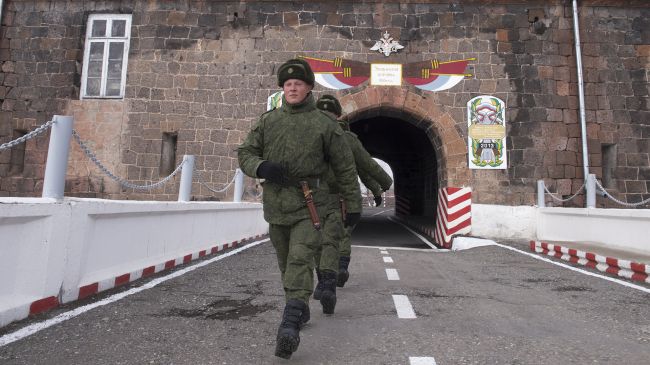
EADaily: Armenia’s withdrawal from the CSTO is fraught with a number of significant risks considering the ‘change in the weather’ in Washington
It is obvious that the public and rather harsh criticism of the Armenian authorities against the CSTO means that its indirect addressee is the leading power of the military-political bloc – Russia, EADaily writes. As noted, the Armenian side wisely does not dare to directly “raise its voice” against Moscow. But at the same time, it does not restrain itself in the case of Belarus, accusing its leader of almost “betraying” its South Caucasus ally. The cessation of Armenia’s membership in the CSTO has not yet significantly affected the general basis of its military alliance with Russia, if we consider the issue from an international legal perspective. The above-mentioned and other agreements in the military-political sphere remain in force.
At the same time, Armenia finds itself in a delicate situation, considering its intention to distance itself from Moscow and pursue “alternative” partners for its security needs. The “diversification” mentioned by Nikol Pashinyan raises a crucial question: which power can replace Russia in the event of its withdrawal from Armenia? The withdrawal from the CSTO will most likely be followed by Yerevan raising the question of the advisability of continuing the Russian military presence in the republic. As for who will fill the security vacuum in Armenia if the 102nd base in Gyumri is closed, the republic’s pro-Western analysts most often give an ambiguous answer: the U.S. or France.
Those who more adequately assess the situation in the region, as well as the capabilities and desire of the two mentioned world powers to assume certain security guarantees in relation to Armenia, note that Turkey will be the real filler of such a vacuum. One way or another, such theories are presented within the framework of no less hypothetical discussions about the “bright future of Armenia in NATO.” Armenia’s withdrawal from the CSTO is fraught with a number of rather serious risks, especially considering the “change in the weather” that has occurred in Washington. Yerevan’s foreign policy “guardians,” in the person of the Democrats led by Joe Biden, are living out their last days in the White House. From the administration of Donald Trump, according to the unanimous opinion of Armenian experts, it is clearly impossible to expect the same close attention to the South Caucasus. In addition, Trump is determined to deal with one of Armenia’s natural allies in the region, Iran, in a much tougher manner than during his first presidential term. One of the obvious risks for Armenia is the economic component of the issue. Although the jurisdictions of the CSTO and the EAEU do not overlap, formally, membership in the first organization has become a kind of “springboard” for military allies in the post-Soviet space to join the Eurasian integration association.


